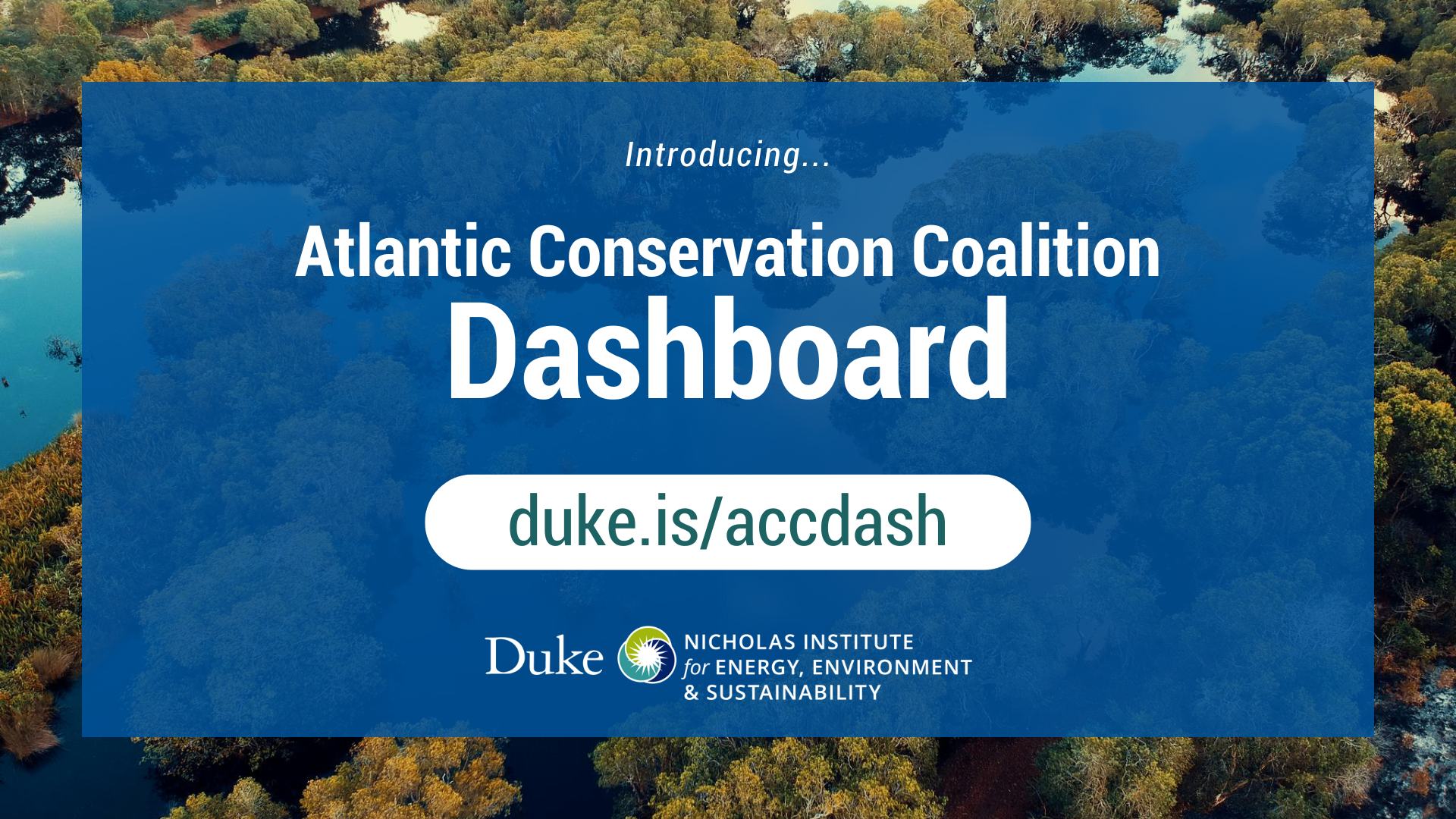Duke University researchers have launched a public dashboard tracking the progress and impact of nature-based solutions efforts along the East Coast. The new resource will provide updates on projects led by the Atlantic Conservation Coalition, which includes state governments in Maryland, North Carolina, South Carolina, and Virginia, in addition to The Nature Conservancy. Eighteen additional organizations are also partners in the effort.
Funded by a $421 million grant awarded by the U.S. Environmental Protection Agency in fall 2024, the coalition is advancing dozens of projects to protect and restore high-carbon coastal habitats, peatlands, and forested land.
The Nicholas Institute for Energy, Environment & Sustainability at Duke is partnering with the ACC to ensure transparency and accountability around the projects’ status and the benefits they provide. Researchers at the Nicholas Institute’s Nature Activation Hub will regularly update the dashboard as projects proceed.
“By increasing visibility into where and how conservation work is taking shape, we’re supporting stronger regional partnerships and long-term progress,” comments Katie Warnell, senior policy associate at the Nicholas Institute.
At launch, the dashboard focuses on the coalition’s project pipeline, offering stakeholders information about what's being developed, where, and how efforts are progressing over time. As projects are implemented, the tool will include information about benefits for communities and ecosystems.
Experts at the Nicholas Institute’s Nature Activation Hub will also aid the coalition’s efforts by assisting North Carolina State Parks and the North Carolina Coastal Federation in prioritizing projects related to state park land acquisitions and coastal habitat resilience.
The Nicholas Institute has been helping to identify and measure nature’s benefits for nearly two decades. In recent years, experts at the institute’s Nature Activation Hub have worked with North Carolina agencies on a variety of efforts to collect data about and maximize the benefits of its natural and working lands.





